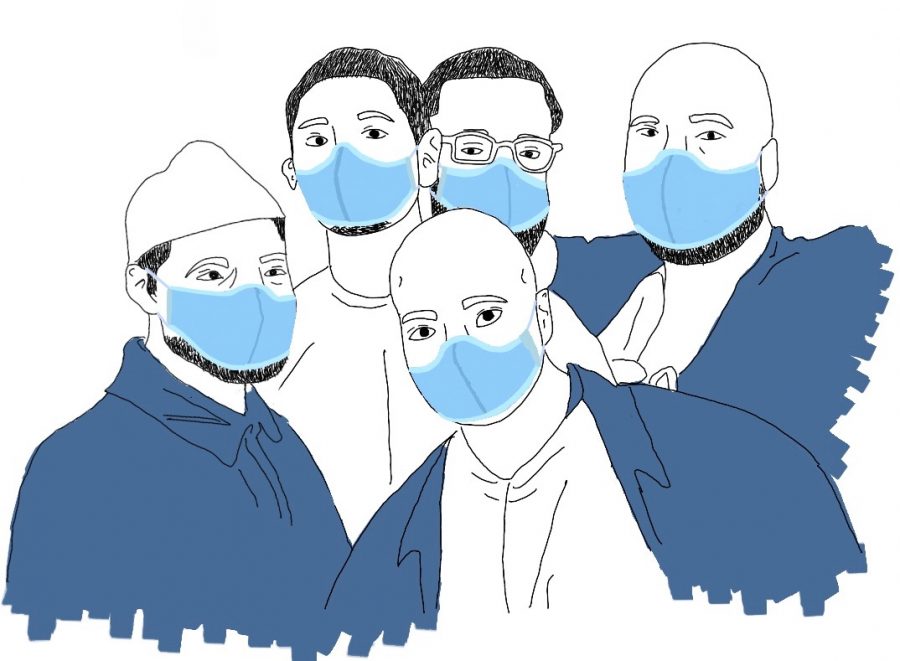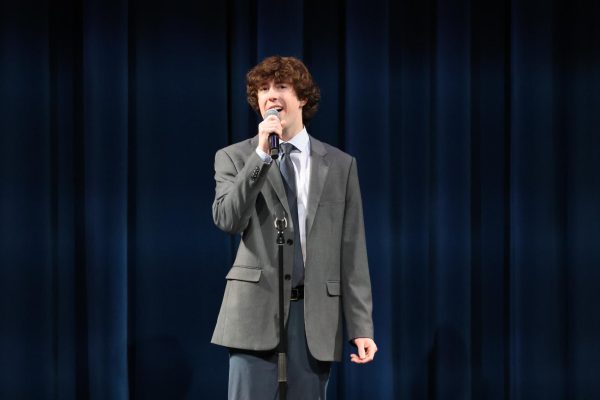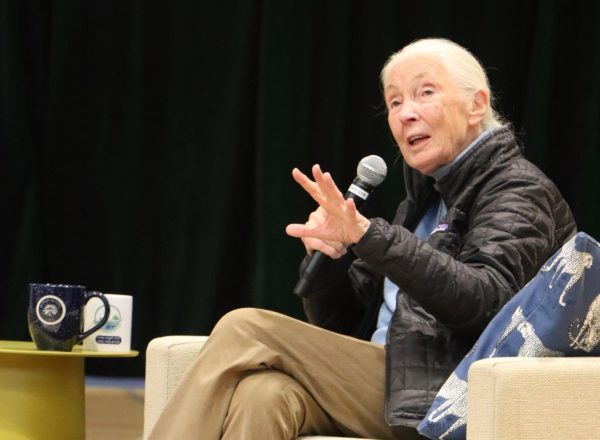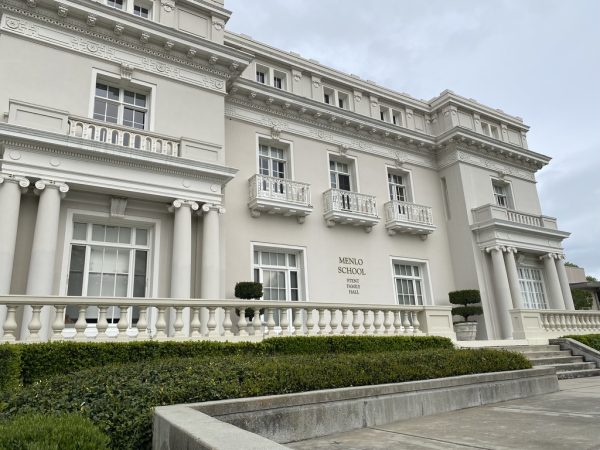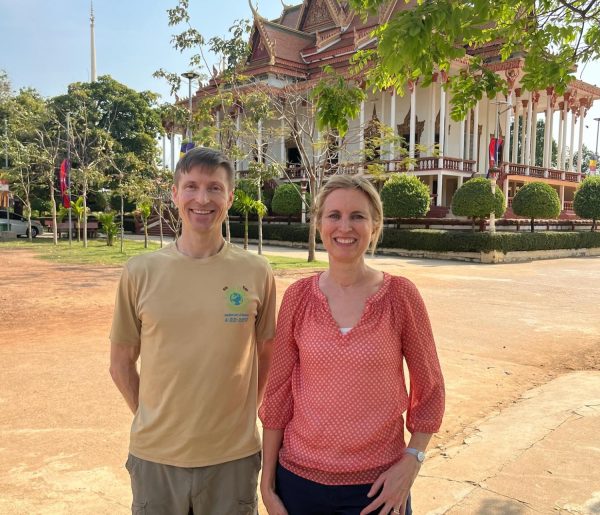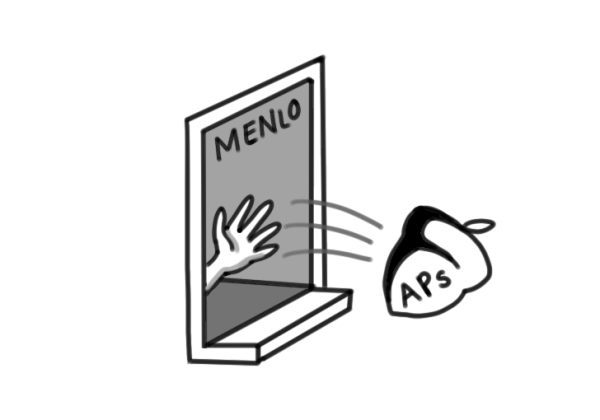Menlo Students and Alumni Step Up Amid San Quentin COVID-19 Crisis
The California Reentry Institute, where several Menlo students and alumni volunteer, provides pre- and post-release programs to individuals in the justice system. As many incarcerated people are released early because of the pandemic, these rehabilitative programs are even more crucial, according to alum Sonya Lebedeva (’20). Illustration courtesy of Kate Richardson.
September 24, 2020
Menlo alum Sonya Lebedeva’s (‘20) interest in the criminal justice system started with a discussion with a friend during Christmas — now she’s working with the California Reentry Institute (CRI) to combat the coronavirus crisis in the San Quentin State Prison.
CRI provides both pre- and post-release programs that seek to improve the reentry of incarcerated people at the California Department of Corrections and Rehabilitation at San Quentin State Prison. This program is based on discussing causative factors of crimes and providing post-release support materials.
San Quentin has seen 2,237 coronavirus cases and 26 deaths out of the 3,082 total people incarcerated there, according to the California Department of Corrections and Rehabilitation (CDCR).
In a July text message conversation between a person who is going through the CRI pre-release program under the alias “Bun” and a CRI volunteer, Bun wrote, “I found out that one of my friends is in the hospital and 5 more are in the tent. The one in the hospital I’m getting mixed information. Some say he passed. […] I am really concerned for their lives.”
In order to help ease the COVID-19-caused crisis in California state prisons, Governor Gavin Newsom announced that he will release 8,000 incarcerated people before the end of September. While this release has begun to significantly lessen the COVID-19 crisis in prisons like San Quentin, many formerly incarcerated people have been left without a plan or housing after their release — that’s where CRI is stepping in.
CRI’s normal post-release program includes providing supplies and counseling support for a fresh start, such as a pair of new shoes, clothes, a backpack and a month’s worth of groceries, along with a reentry house, which provides low cost housing for formerly incarcerated people who have just been released. As landlords are less likely to rent to previously incarcerated people, the ability to have a safe home to restart is of vital importance, according to the CRI website.
The post-release program became especially important during the COVID-19 crisis, as many individuals in the CRI program were released from San Quentin with little notice, leaving them with no time to prepare for a plan or housing post-release, according to Lebedeva.
Lebedeva works as a manager for CRI’s social media (Instagram, Twitter and Facebook), helping to spread awareness about the pandemic and raise funds for CRI.
CRI’s pre-release rehabilitation method includes discussing causative factors and trauma that lead to crimes with the incarcerated people in group therapy-like sessions, especially through “surrogate victims,” according to Lebedeva. In this way, the incarcerated people understand that there is no victimless crime and help emotionally transform themselves to act more vulnerable.
In addition to Lebedeva, Menlo seniors Libby Eggemeier and Ishani Sood and sophomore Annie Stent volunteer with CRI, and visits to San Quentin are usually included as part of the sophomore year M-Term course.
“I was inspired to volunteer for the California Reentry Institute because they believe everyone deserves a second chance and is worthy of dignity and respect. […] I am grateful to intern at such a forward-thinking organization as restorative justice is the path towards breaking the cycle of incarceration and creating a more equal future for everyone,” Eggemeier, who runs the CRI Twitter page, said.
Lebedeva says that the most valuable way that Menlo students can get involved with San Quentin is by volunteering for or donating to CRI, potentially enabling them to reflect on their own perspectives on the prison system, much like Lebedeva has done since her Christmas conversation with her friend.
“My initial perspective was that there should be programs that help people rehabilitate and that prisons aren’t doing an effective job. I feel like, no, [my perspective] hasn’t changed, but I just know more. I knew that prisons were horrible, and I knew how prisons treated people and focused on punishment and not restorative practices, but I didn’t realize the extent of how transformative and how positive something like CRI could be,” Lebedeva said.
Note: One of CRI’s goals is to create a positive life for previously incarcerated people after their release. For this reason, labels such as “inmate” and “prisoner,” which carry stigma and “make people see themselves as a prisoner for the rest of their life,” according to Lebedeva, were avoided in this article.


